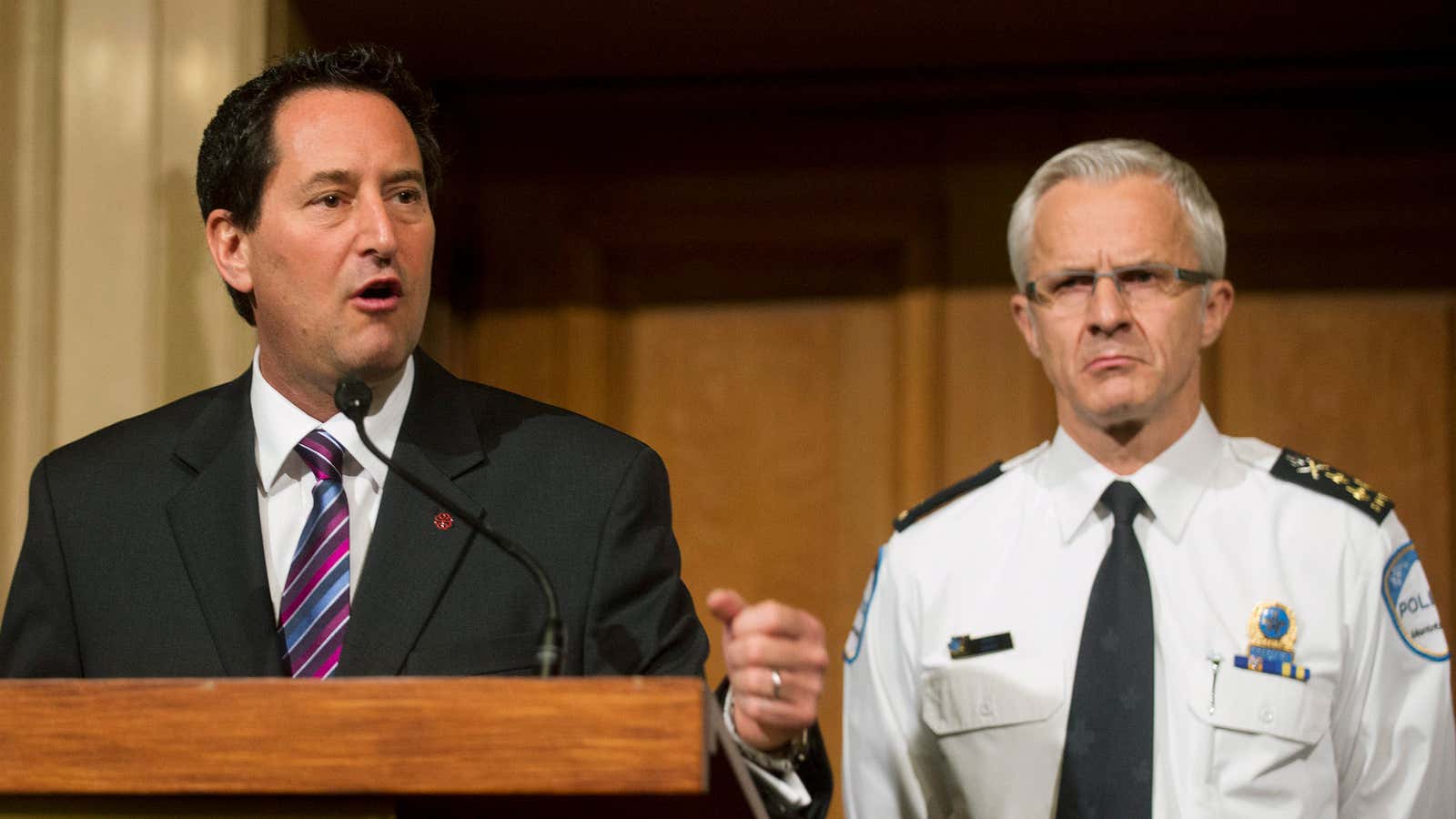Montreal’s new mayor, Michael Applebaum, has just resigned after being arrested yesterday on fraud and corruption charges in connection to two real estate deals. The whole affair comes on the heels of allegations that Toronto mayor Rob Ford smokes crack—and was apparently caught on video doing so.
The headlines are what you’d expect: “What the heck is wrong with the mayors of Canada?”
But here’s the real story: their careers aren’t necessarily over.
In 1990, Americans watched Washington, DC mayor Marion Barry smoke crack cocaine in a video shown over and over on the nightly news. They were aghast—but it was nothing compared to the embarrassment everyone felt four years later, when Barry was elected again. It turns out that local voters were willing to forgive his transgressions because they saw him as a champion of community empowerment—and he helped lots of people get jobs.
It’s an important lesson, the world over: Delivering resources to constituents mollifies voter attitudes toward scandal. In fact, some graft may be expected. As a rule of thumb, political scandals often involve what former New York City mayor Ed Koch characterized as the confluence of a weak mind and opportunity. But institutional factors may influence the genesis of these scandals as well. It is hardly coincidence that every other mayor is embroiled in scandal—politics at the local level largely enables such behavior.
Many local leaders toil as political gadflies for years before becoming an elected official with institutional power and influence. Once in office, a sense of entitlement develops that marries their long-awaited ascendancy to the expectation of rewards for patience and newfound clout. Oftentimes, these leaders bully their way to receiving benefits and advantages at the expense of their constituents, good judgment and with disdain for accountability. The irony is that they often arrive to office, as in the case of Applebaum, with an anti-corruption, “cleaning up” agenda.
But local government’s ethics rules are typically weak and do little to discourage crossing moral or legal lines. Consider that the New York Public Interest Research Group reports that 32 elected leaders in the state have been involved in scandals within the last seven years making New York, a reliably blue and historically progressive State, one of the most corrupt in the country.
This reality puts local leaders in a bit of a predicament. They are hardly in the same white-hot media spotlight as their federal or state-level elected counterparts. At the same time, their platforms are being elevated like never before. A recent Quartz piece likens mayors to a modern-day combination of diplomats and business leaders, traveling the world to ink deals and forge relationships with one another’s governments.
The absence of local checks and balances leaves really only one effective vetting process: campaigns and elections. After evaluating idiosyncratic strengths and weaknesses, voters often respond with a visceral reaction that reject controversies involving preferred candidates. On the local level, unlike national elections where there is some physical and emotional distance and greater scrutiny, voters are hugely protective of their leaders to a fault.
And since politicians have a re-election imperative, they often manipulate that emotion and loyalty, labeling detractors as interlopers to regain favor among the electorate. In fact, most data show that the reelection rate of Member of Congress, for example, has increased over the decades to upwards of 90%.
The resulting political clubhouse atmosphere subsists on this localized loyalty and protects its members under the guise of defending the institution but reduces credibility and tamps down voter enthusiasm and turnout. Consider that the speaker of the New York assembly, probably the second most powerful position in state government, has been accused of willfully ignoring sexual abusers in his office and among his members. Despite a recent poll that says 52% of New Yorkers want him to see him step down, his legislative colleagues have enthusiastically supported him in public, fearing reprisals and loss of chairmanships or other benefits.
Toronto’s Ford is famously refusing to resign. Applebaum succumbed quicker—but maintains his innocence. The Ottawa Citizen reports, “In a message to people of the city, Applebaum says he loves them and promises that he has ‘never taken a penny from anybody.'” Ultimately, these politicians might not gain the public’s forgiveness, but winning their votes seems highly probable.
